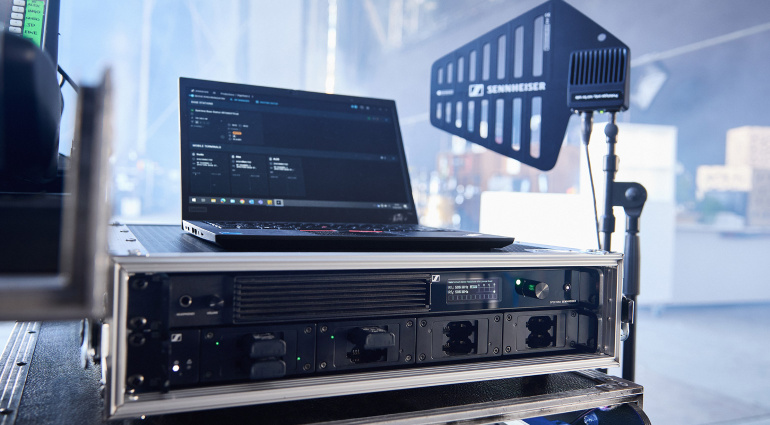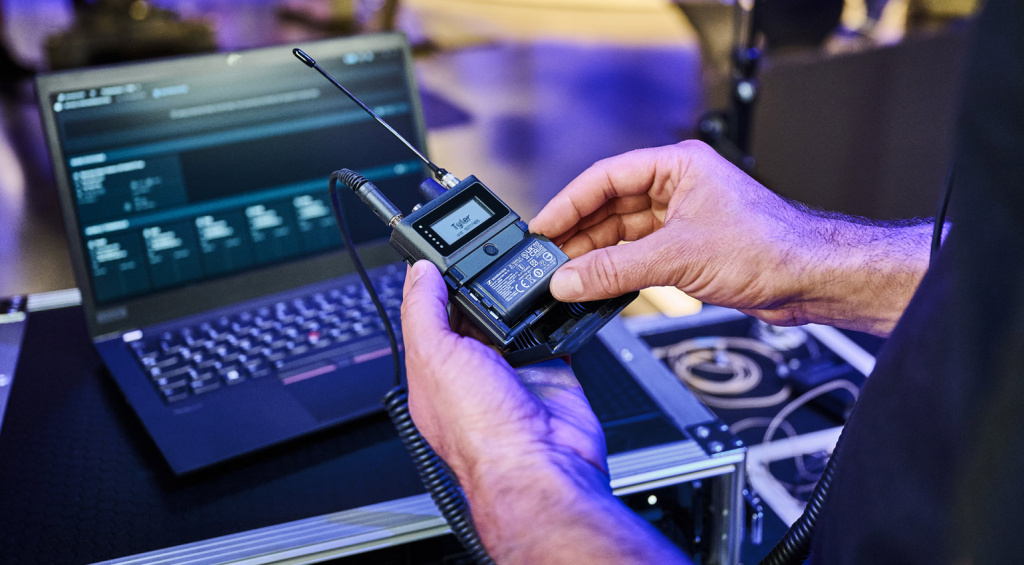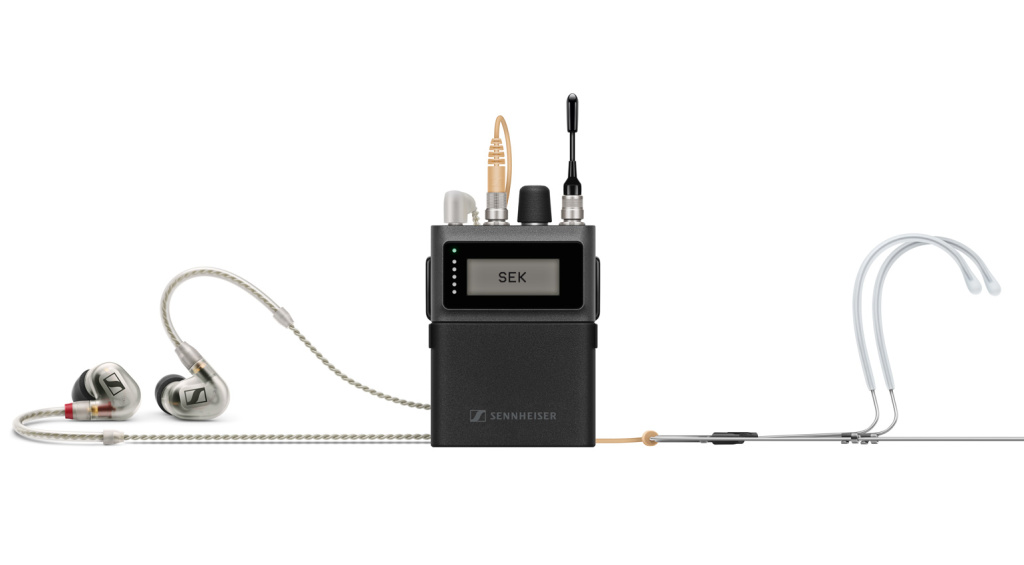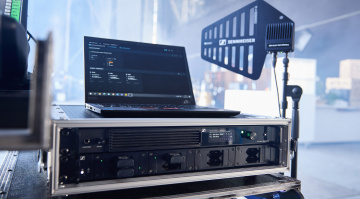Sennheiser Spectera is said to be a minor revolution in wireless audio transmission. According to the German manufacturer, it is the world’s first bidirectional wireless broadband ecosystem. The new WMAS technology promises easy handling and fast workflows.
Sennheiser Spectera focuses on bidirectional wireless audio transmission
Sennheiser Spectera is set to bring a breath of fresh air to the touring, broadcast and theatre sectors. Sennheiser promises the world’s first system for bidirectional and wireless broadband audio transmission. And it does so with a minimum of hardware that not only takes up little space, but is also quick to set up and easy to operate.
WMAS (Wireless Multichannel Audio Systems) plays an important role in Sennheiser Spectera. This is a proprietary variant of OFDM-TDMA specially designed for reliable bidirectional multichannel communication with low latency.
Base Station and Bodypack with Sennheiser Spectera
At the core of the Sennheiser Spectera system is the base station with 32 inputs and outputs. Designed in a 19-inch format with just one height unit, it can virtually replace an entire rack of wireless microphone receivers and IEM transmitters. According to the manufacturer, an entire production can be accommodated in just one broadband RF channel (6/8 MHz).
With two power supplies, primary and secondary Dante connections, two optional slots for MADI and a connection for up to four antennas, the new system is also designed for redundancy – for greater safety in live situations.

The system’s bodypacks are also designed for efficiency, handling IEM/IFB and microphone/line signals simultaneously. The bodypack has a 3-pin input for lavalier or headset microphones, and instrument cables such as the CI 1-4 can also be connected. There is also a headphone output (3.5mm) with a high quality headphone amplifier and impedance adjustment. The rechargeable battery provides up to seven hours of operating time, and the two available Spectera SEKs permanently display device information.
Sennheiser Spectera not only offers a return channel, but also relies on continuous bi-directional communication. This allows audio settings to be made, IEM and microphone levels to be adjusted and RF channel quality and charge status to be monitored. AES 256 encryption provides the necessary data protection. Continuous spectrum monitoring also allows interference from other RF sources to be quickly identified.
According to Sennheiser, optimised audio codecs with an internal 32-bit float ensure optimum audio quality. Eleven link modes can be individually controlled in terms of latency, audio quality, number of channels and range. Flexible assignments allow sound engineers to get the most out of each channel. Latency can be reduced to as low as 0.7 milliseconds.
LinkDesk software
Sennheiser Spectera also comes with the new LinkDesk software. The application runs under MacOS or Windows and turns your computer into a remote control and monitoring centre.
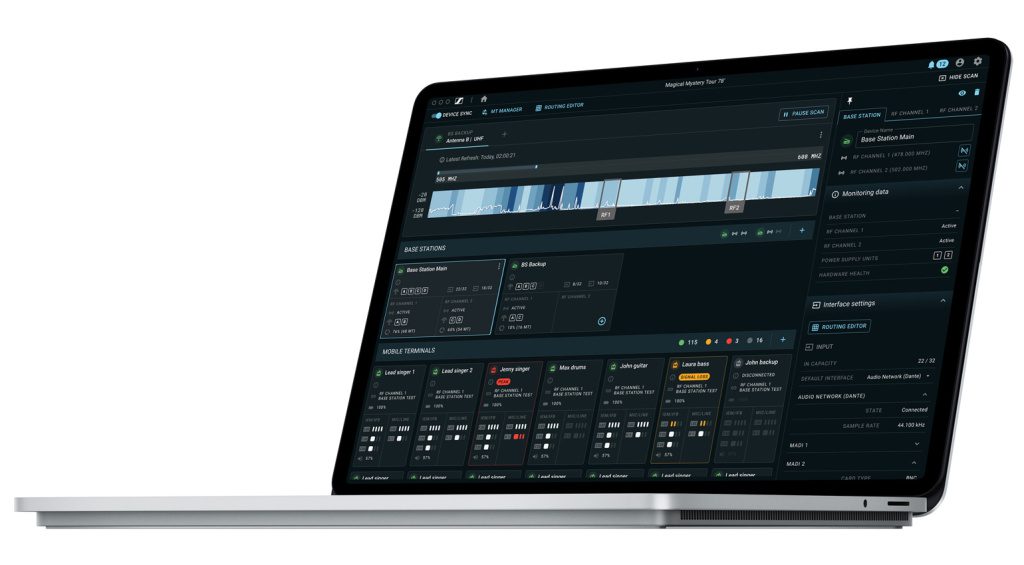
The user can flexibly switch between the audio link modes and individually set the audio quality, latency, possible audio links and range. The entire system can also be monitored.
A cool feature is the ability to store complete setups and easily recall these when needed.
The software is also used to activate the base station via a device-specific single-node licence. The software ensures that the system operates within local frequency, RF channel bandwidth and power regulations.
Availability and pricing
According to Thomann, the Sennheiser Spectera will be available shortly. The base station will cost €9995, the transmitter/receiver €1999 and the antennas €1599 each. You can find an overview here at Thomann*.
For further information
*Note: This article contains advertising links that help us pay for this site. Don’t worry: the price for you is always the same! If you buy something through these links, we will receive a small commission. Thank you for your support!

